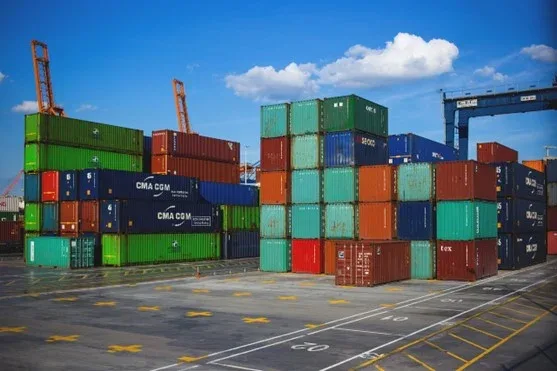In today’s rapidly globalizing economy, the movement of goods across borders is more critical than ever. Whether you’re a small business owner looking to expand internationally, or a large corporation maintaining a complex supply chain, understanding the intricacies of freight forwarding is essential. This comprehensive guide aims to shed light on the pivotal role that freight forwarding plays in global trade, demystifying its processes, benefits, and challenges.
What is Freight Forwarding?
Freight forwarding is often perceived as a complex and opaque industry, shrouded in logistical jargon and intricate paperwork. At its core, freight or cargo forwarding refers to the coordination and shipment of goods from one destination to another using a variety of carriers, including air, ocean, rail, and road transport. A cargo forwarder acts as an intermediary between the shipper and transportation services, leveraging their expertise, network, and technology to streamline the shipping process.
The essence of it lies in its ability to simplify global trade’s complexities. By handling the logistics of transporting goods, forwarders allow businesses to focus on their core operations, without the burden of managing intricate shipping details. This involves a detailed understanding of the legal, customs, and documentation intricacies involved in international trade.
Freight forwarders do not move the freight themselves. Instead, they collaborate with carriers to negotiate the best possible price for moving the goods along the most efficient route. They take into account various factors such as the type of goods, their size, weight, and the cost to the shipper, aiming to strike a balance between cost, speed, and reliability.
The Role of a Freight Forwarder in the Logistics Industry
The logistics industry encompasses a vast ecosystem of services designed to facilitate the smooth movement of goods from producers to consumers. Within this ecosystem, freight forwarders play a central role, acting as the architects of the supply chain. They possess the knowledge and skills to efficiently navigate the complexities of international shipping, including regulations, transportation options, and best practices.
A freight forwarder’s role extends beyond mere transportation. They are also responsible for strategic logistics planning, including route planning, carrier selection, and shipment consolidation. By consolidating shipments from various shippers into one full container load (FCL), freight forwarders achieve economies of scale, reducing costs for individual shippers.
Moreover, freight forwarders offer invaluable expertise in customs clearance, a critical component of international shipping. They ensure that all necessary paperwork is properly managed, and legal and regulatory requirements are met, minimizing the risk of delays or penalties. This comprehensive approach not only enhances efficiency but also provides peace of mind for businesses navigating the complexities of global trade.
Benefits of Using a Freight Forwarder
Engaging the services of a freight forwarder offers numerous advantages, particularly for businesses looking to expand their reach globally.
Firstly, forwarders bring a wealth of experience and expertise in international trade, guiding customs, tariffs, and necessary documentation. This expertise is invaluable in avoiding common pitfalls that can result in delays or financial losses.
Secondly, freight forwarders have established relationships with carriers and other key players in the logistics industry. These relationships enable them to secure competitive rates and ensure that shipments are prioritized, leading to cost savings and enhanced reliability.
Furthermore, freight forwarders offer flexibility and scalability. They can tailor their services to meet the specific needs of businesses, regardless of size or industry. Whether it’s a one-time shipment or ongoing logistics support, forwarders adapt their solutions to fit the unique requirements of each client, ensuring that goods are delivered efficiently and effectively.
How Freight Forwarding Works?
Understanding the process is essential for businesses looking to leverage this service. The process begins with the shipper contacting a freight forwarder to request a quote for shipping goods. The forwarder then assesses the shipment’s needs, including destination, mode of transport, and time frame, to provide a detailed quote.
Once the terms are agreed upon, the freight forwarder takes charge of the shipment, coordinating with carriers to book cargo space. They also handle all necessary documentation, including bills of lading, invoices, and customs paperwork, ensuring compliance with international shipping regulations.
Throughout the transportation process, freight forwarders track the shipment, providing updates to the shipper and addressing any issues that arise. Upon arrival at the destination, they coordinate the final delivery, ensuring that the goods are delivered to the end recipient in a timely and efficient manner.
Types of Services Offered by Freight Forwarders
Freight forwarders offer a broad spectrum of services tailored to the diverse needs of their clients. These services span the entire logistics chain, from the initial planning stages to the final delivery of goods.
Key services include:
- Transportation: Forwarders arrange the transport of goods using various modes, including air, sea, rail, and road, selecting the most appropriate and cost-effective option for each shipment. We recommend to read more about the modes to transportation
- Warehousing: Many forwarders provide warehousing solutions, offering secure storage for goods before shipment or upon arrival at the destination.
- Cargo insurance: Forwarders often facilitate the purchase of cargo insurance, protecting against loss or damage during transit.
- Customs brokerage: A critical service offered by forwarders is customs brokerage, ensuring that all customs documentation is accurately prepared and filed, and providing representation during customs inspections.
These services, combined with their expertise in logistics planning and management, make freight forwarders indispensable partners for businesses engaged in international trade.
How to Choose the Right Freight Forwarder for Your Business
Selecting the right freight forwarder is a pivotal decision for businesses looking to streamline their logistics operations. Several factors should be considered to ensure that the chosen forwarder aligns with the business’s needs and objectives.
Firstly, evaluate the forwarder’s experience and expertise, particularly in your industry and the specific markets you are targeting. An experienced forwarder with a deep understanding of your business can offer tailored advice and solutions.
Secondly, consider the forwarder’s network and relationships with carriers. A forwarder with a robust network can provide more options and flexibility, ensuring that your shipments are prioritized and delivered efficiently.
Finally, assess the forwarder’s customer service and communication. Effective communication is crucial in logistics, where timeliness and responsiveness can significantly impact the success of your shipments.
Key Considerations When Shipping Goods Internationally
International shipping entails several key considerations, from regulatory compliance to cost management. Navigating these challenges requires careful planning and attention to detail. Importantly, businesses must be aware of customs regulations in both the origin and destination countries, ensuring that all necessary tariffs are paid and documentation is in order.
Moreover, understanding the Incoterms (International Commercial Terms) that govern international trade is crucial. These terms define the responsibilities of buyers and sellers in international transactions, including who is responsible for shipping, insurance, and customs clearance.
Lastly, consider the total cost of shipping, which includes not only freight charges but also insurance, duties, and other fees. A clear understanding of these costs is essential for budgeting and pricing strategies.
Understanding the Documentation and Paperwork Involved in Cargo Forwarding
The success of international shipments heavily relies on the accurate preparation and management of documentation. Key documents include the bill of lading, commercial invoice, packing list, and certificate of origin. Each of these documents serves a specific purpose, from detailing the terms of the shipment to proving the origin of the goods.
Freight forwarders play a crucial role in ensuring that all documentation is accurately prepared and filed. This not only facilitates smooth customs clearance but also provides legal protection and documentation of the transaction for all parties involved.
Challenges and Solutions in Freight Forwarding
Despite the many benefits offered by cargo forwarding, businesses may encounter challenges, including delays, lost shipments, and customs issues. Proactive communication and planning are essential in mitigating these risks. Establishing clear expectations with your freight forwarder and maintaining open lines of communication can help address issues promptly as they arise.
Moreover, leveraging technology can enhance the efficiency and reliability of it. Many forwarders now offer digital platforms ( Click here to see an example) that provide real-time tracking and updates, enabling businesses to stay informed throughout the shipping process.
Emerging Trends and Technologies in the Freight Forwarding Industry
The freight forwarding industry is rapidly evolving, with new trends and technologies emerging to meet the demands of global trade. Digitalization is at the forefront of this transformation, with platforms and blockchain technology streamlining operations and enhancing transparency.
Sustainability is another key trend, as businesses and forwarders alike seek to reduce the environmental impact of logistics operations. This includes exploring alternative fuels, optimizing routes, and adopting eco-friendly packaging solutions.
Lastly, the rise of e-commerce is shaping the future of it, driving the demand for faster, more flexible shipping options. Forwarders are adapting to this shift by offering tailored e-commerce logistics solutions, enabling businesses to capitalize on the global marketplace.
Conclusion: The Importance of Freight Forwarding in Global Trade
It is an indispensable component of global trade, facilitating the efficient and reliable movement of goods across borders. By demystifying the processes and benefits of cargo forwarding, businesses can better leverage this logistics powerhouse to expand their global reach and enhance their competitive edge.
As the world becomes increasingly interconnected, the role of freight forwarders will only grow in importance. Embracing the services of a competent and experienced freight forwarder is a strategic investment in the success of your business’s international ventures.
Streamline Your Global Trade with IOR Africa Services
Are you looking to expand your business across borders without the hassle of complex customs and regulatory challenges? Look no further!
IOR Africa Services is your trusted partner in Import and Export Management. We specialize in Importer of Record (IOR) and Exporter of Record (EOR) services to facilitate smooth and compliant trade operations for your business in Africa.
- Hassle-Free Customs Clearance: Say goodbye to the complications of customs clearance. Our experts handle all the paperwork and ensure that your goods clear customs swiftly.
- Regulatory Compliance: Stay compliant with local and international trade regulations. We’ll navigate the legal complexities so you don’t have to.
- Cost-Effective Solutions: Get the most economical and efficient import-export solutions tailored to your business needs.
Don’t let logistics hold you back from global success.


Recent Comments